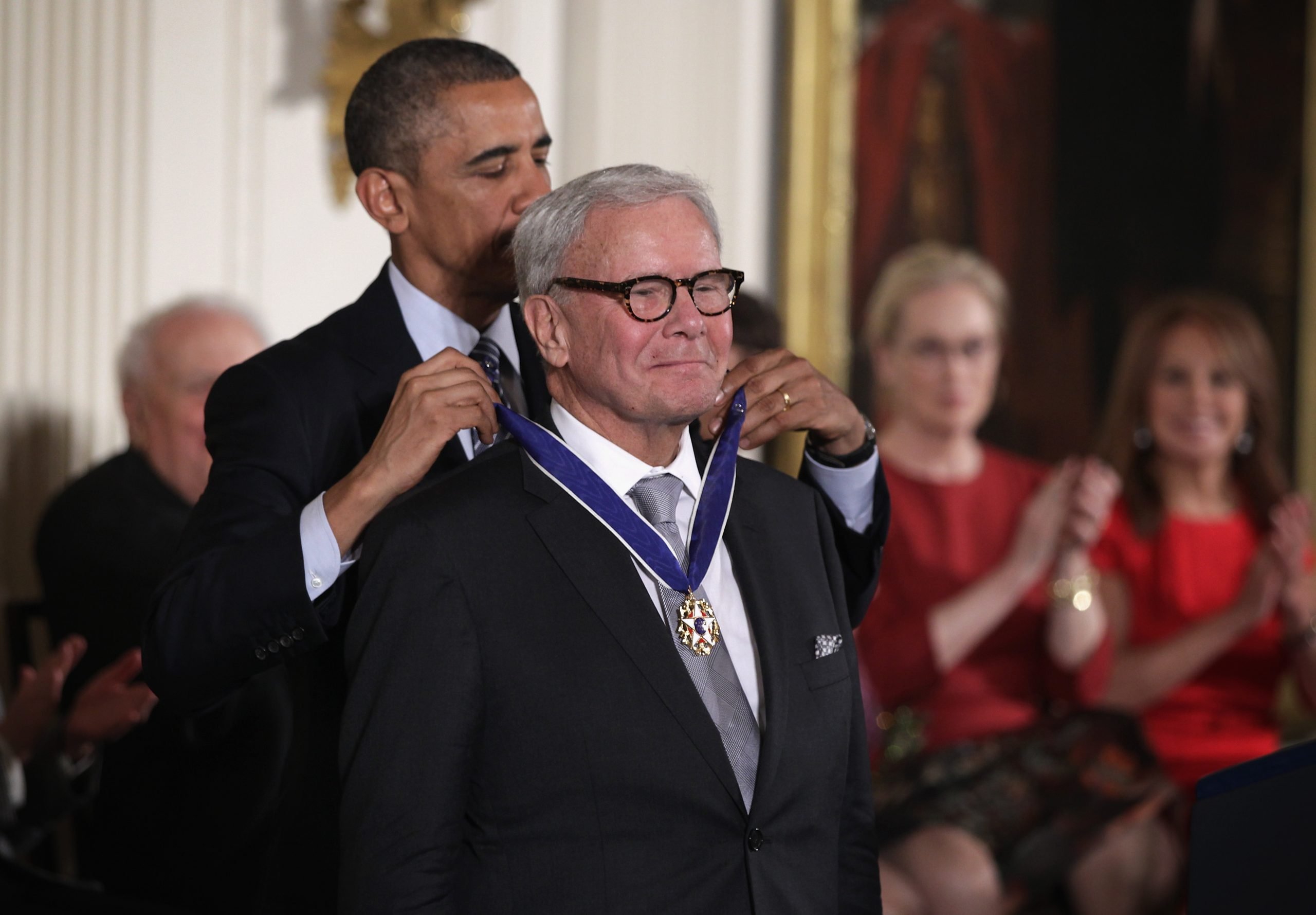Journey of Overcoming Obstacles and Self-Discovery
- Journalist Tom Brokaw, 83, was diagnosed with multiple myeloma, a type of blood cancer. He underwent effective maintenance therapy to help manage his symptoms of the incurable blood cancer and lead a good quality of life.
- Multiple myeloma is a rare type of blood cancer that hinders the body’s ability to fight infections. It can cause weakness, dizziness, bone pain, and confusion, among other symptoms. Advancements in multiple myeloma treatments have improved the lives of patients battling the disease.
- Brokaw has used the chemotherapy drug Revlimid (lenalidomide) is a maintenance therapy that promises extended survival for patients with multiple myeloma.
Many years before veteran journalist Tom Brokaw, 83, became a household name in television news and before his multiple myeloma diagnosis, he was a young lad trying to find his place in the news business. During those formative years, he had to overcome a pronunciation issue with the letter “L”. A problem he didn’t know he had. He also carried the weight of covering former President Ronald Reagan, which thrust him into the journalism spotlight at a young age.

While reflecting on his legendary career with NPR, he admitted in the late ’70s, he had an “L’ issue” that he was unaware of.
Read More
Around this self-discovery, he was offered a position to report the news in Atlanta as the TV station’s evening anchor. Soon after starting his new gig, former President Ronald Reagan’s national political presence was taking shape. NBC News came calling with an opportunity to cover the would-be president.
Brokaw recalls news executives offering him the position with NBC.
“We’d like you to go work for us full-time,” Brokaw said. He was soon assigned to cover Reagan’s California gubernatorial campaign. Brokaw said, “That was a big break.”
Helping Patients Better Understand Multiple Myeloma
Tom’s Multiple Myeloma Diagnosis and Treatment
The former “Nightly News” host was diagnosed with multiple myeloma in 2013. He managed to work through his diagnosis until retiring in 2021 after 55 years of service.
“I really had to give up my daily activity with NBC. You know, I had to walk away from them as they were walking away from me. I just wasn’t the same person…And so for the first time in my life, I was kind of out there, you know, in a place I had never been in my life,” Brokaw said on CBS Sunday Morning.

“I kept thinking bad things wouldn’t happen to me. But as I grew older, I began to develop this condition. And what you try to do is control it as much as you can,” he said.
After Brokaw received his multiple myeloma diagnosis in 2013, he recalled he took it in stride.
“I didn’t go into a meltdown of some kind. I was very cool about it. I was kind of in two parts: I was operating as a journalist human being, and the other part was kind of on the outside looking in saying, ‘This is a big deal, you’ve got to stay cool.'” Brokaw previously explained in a column.
Brokaw noted that he didn’t want this diagnosis and its treatment to hold him back from the life he wanted to keep living.
Brokaw’s Treatment Gave Him a Good Quality of Life
Brokaw’s cancer journey led him to a breakthrough treatment that helped him manage his symptoms.
He received Revlimid (generic name lenalidomide), a breakthrough oral medication that has helped treat patients living with multiple myeloma. Combined with other therapies, standard doses of lenalidomide kill off myeloma cells.

Low doses of Revlimid are then used as maintenance therapy to help keep the immune system on alert to target the myeloma in case it reemerges within the body.
“The Revlimid thing for me has been no side effects whatsoever,” Brokaw told SurvivorNet.
“I think that I’m doing as well as I am in part because of Revlimid. I’ve been very fortunate, of course, in not having a reaction to a lot of the very powerful drugs that I am taking,” Brokaw continued.
The new treatment has shown great promise, giving multiple myeloma patients and their families hope.
“If you look at the most recent meta-analysis of clinical benefit from lenalidomide, you’re seeing survival gains of two and 1/2 to three years as a median by virtue of its use. And that’s not progression-free survival, that’s overall survival,” Dr. Paul Richardson, director of clinical research at the Jerome Lipper Multiple Myeloma Center, previously told SurvivorNet.
“What we’re realizing is that lenalidomide (Revlimid) is really conferring tremendous clinical benefit by virtue of its continuous use, and it’s impacting on survival and progression-free survival in a remarkably substantial fashion,” Dr. Richardson added.
Since Brokaw began his maintenance therapy, it’s helped him maintain a good quality of life and keep the disease under control for longer periods.
Learn more about SurvivorNet's rigorous medical review process.




